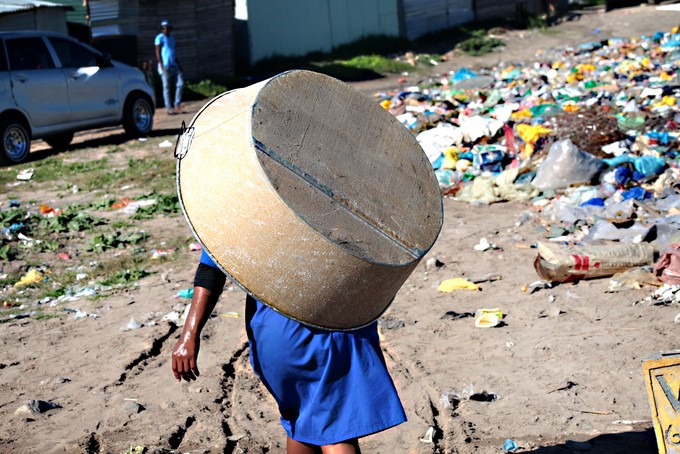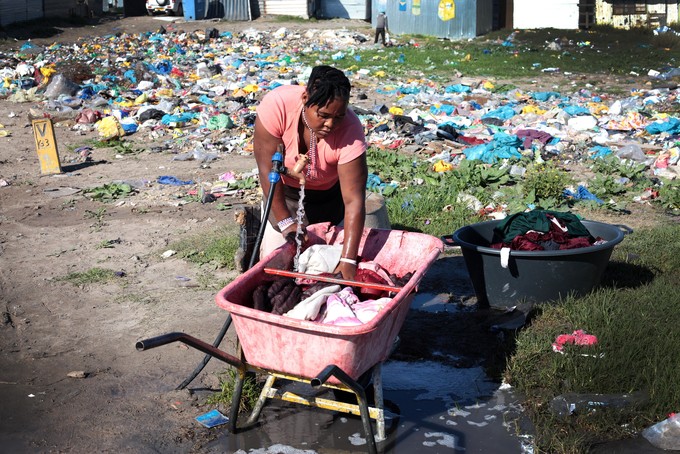
Nomvisiswano Lutwetsha does her washing at one of the few communal taps on the outskirts of the Marikana settlement in Philippi.
23 May 2016
Stuff your dirty clothes in a washing machine. And turn it on. That’s one of the great conveniences of modern living.
If you don’t have a washing machine, getting your clothes clean is a time-consuming chore, but it’s considerably easier doing it in a formal brick and mortar house than a shack.
Nomvisiswano Lutwetsha lives with her three children in a shack in Marikana, an informal settlement along Symphony Way in Philippi. The residents are frequently in conflict with authorities because they are occupying privately-owned land. But residents say they have nowhere else to live. They named their settlement after the location of the massacre of Lonmin mineworkers of 16 August 2012.
Shacks don’t have water. And there are no communal taps inside the informal settlement. Instead they have been placed alongside the settlement. For people like Lutwetsha who live deep inside the settlement it is a 200 to 300 metre walk, using a wheelbarrow to carry the family’s clothes, to get to water.
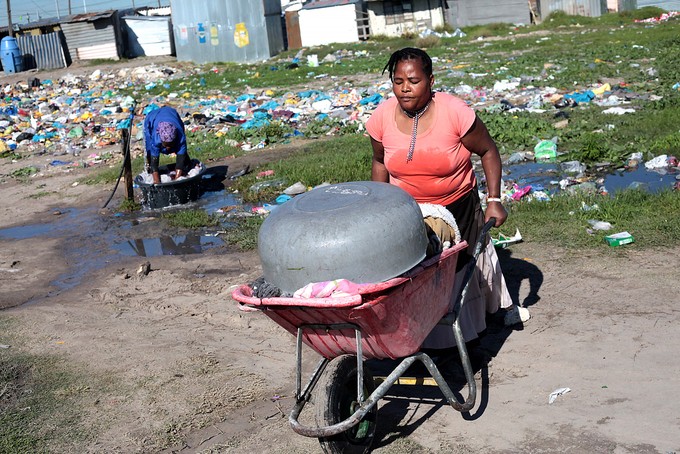
When there are a lot of people, there is a queue to use the few communal taps (we counted three taps).
There are no bins inside Marikana. Nor is there a regular garbage removal service. So the rubbish collects on the outskirts of the settlement.
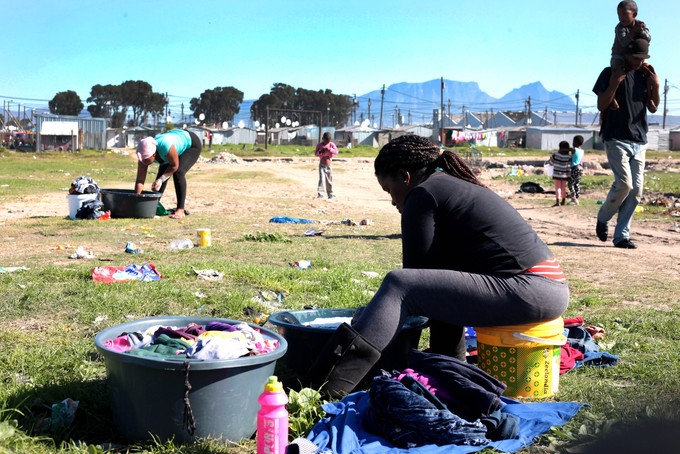
Everyday, when the sun is shining, you can find women doing laundry on the open space outside the settlement, with Table Mountain in the background.
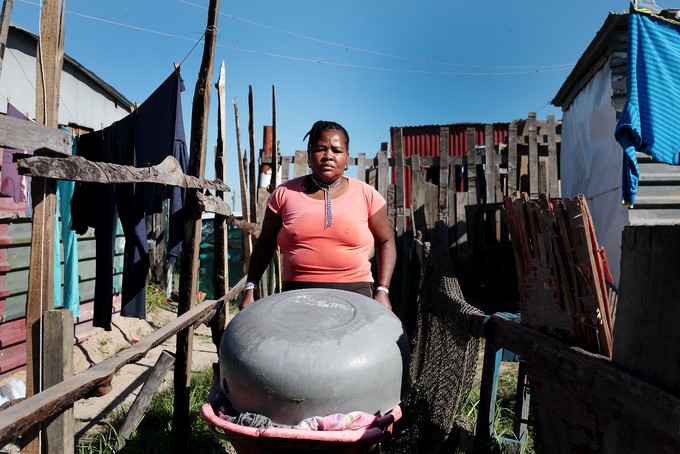
When Lutwetsha is finished cleaning her clothes, she uses a wheelbarrow to take them back to her shack. The day GroundUp visited the settlement, she spent three hours doing laundry.
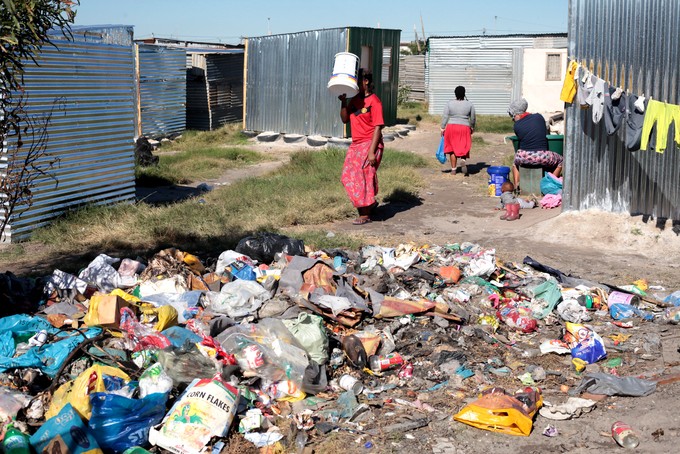
After washing clothes, people have to find a way to hang up their laundry, even though there is limited space and rubbish lies uncollected between the shacks.
Residents say they are sometimes robbed while doing their washing.
